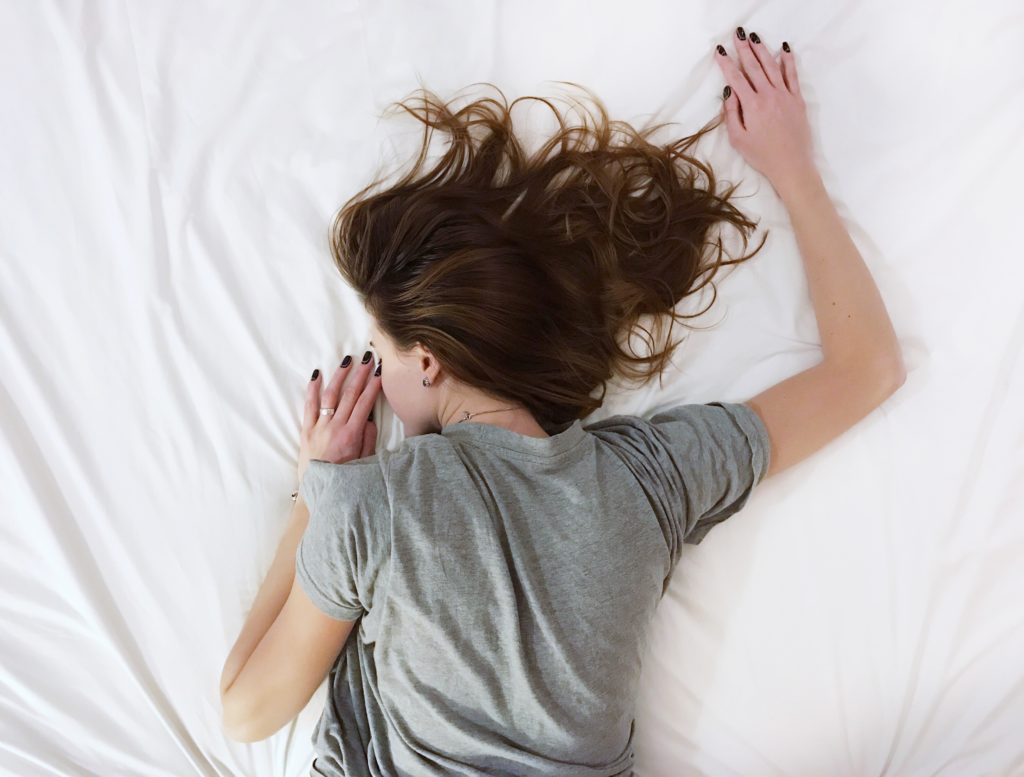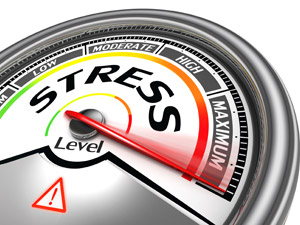The NHS guidance on sleep is clear: adults need between seven and nine hours of quality sleep each night. Of course, we’ll all experience sleeplessness or a disrupted night from time to time, and if it’s only an occasional occurrence, it’s not going to do us any lasting harm. But when the quality and/or quantity of our sleep is consistently poor, it can be extremely detrimental to our overall health and well-being.
A lack of sleep can impact us in many ways – impeding our brain function, compromising our immune system and affecting our mood, to name but a few. But what many people don’t realise is that sleep also has a huge influence on our metabolism, our fitness levels and our weight.
And here’s a truth bomb: if you’re trying to lose weight or maintain a healthy weight, the amount and quality of sleep you get is likely to be just as important as your diet and the amount of exercise you take.
Why is sleep important for weight loss?
Many, many studies have looked at the link between sleep and weight – and time and again it’s been scientifically proven that getting a good night’s sleep is one of the best tools we have for preventing weight gain. One piece of research, for example, showed that people who got more sleep actually consumed fewer calories.
The reasons behind this are complex, but they can be broadly categorised into three key areas that are negatively impacted by a lack of sleep: brain function, hormonal activity and lifestyle. I think it’s really helpful to understand why there’s a correlation between getting enough sleep and losing weight, so let’s take a look at each of these factors.
Sleep deprivation and the brain
As is brilliantly explained in this article from Sleepstation.org, there are two key regions of the brain that are affected by sleep deprivation. One is the prefrontal cortex, which is responsible for decision making and self-control, and the other is the amygdala, which controls our emotions.
When we don’t get enough sleep, brain activity reduces in the prefrontal cortex and increases in the amygdala. As a result, our willpower goes down and we are less able to exercise self-control, while at the same time our emotions are heightened and we’re more responsive to things that give us pleasure.
Essentially, when we’re tired, we get more excited about all those tempting-but-unhealthy foods, and far less able to show restraint. So, if we like chocolate but are usually able to resist eating the whole bar, that becomes nigh-on impossible after a bad night’s sleep!

Sleep deprivation and hormones
While all of that is going on in the brain, our hormones are also reacting to our sleep-deprived state.
Ghrelin and leptin are the hormones responsible for regulating our appetite: ghrelin makes us feel hungry, and leptin makes us feel full. These two hormones work together like a see-saw, and we need adequate sleep to keep the balance right.
When we don’t get enough sleep our leptin levels decrease, which sends signals to the brain to tell us we’re hungry, even though we don’t actually need the extra energy. We end up consuming more calories than we expend, so the excess is stored in the body as fat reserves.
On the flip side, our levels of ‘the hungry hormone’ ghrelin would normally decrease while we sleep. But when we don’t get enough rest, these levels don’t reduce as much as they should – again, this results in us feeling hungry even when our body is adequately fuelled.
And then there’s insulin, the hormone that helps regulate our blood-sugar levels and regulates our body’s storage of fat. Put simply, without enough sleep our body can become resistant to insulin, resulting in excess blood sugar that then gets stored as fat.
Sleep deprivation and lifestyle
It goes without saying that when we don’t get enough sleep, we feel tired and lethargic, with little energy or inclination to exercise. So our activity levels go down and we burn off fewer calories.
And of course, if we’re sleeping less it means our ‘awake window’ is longer, which gives us more opportunity to respond to all those confused ‘hungry’ signals our tired brain and body are sending us.
There’s also another important factor at play – stress. When we don’t get enough sleep we often feel more stressed, and this can also cause us to reach for unhealthy food or start comfort eating as a coping mechanism.
Three tips to get a better night’s sleep
Now we’ve looked at the reasons WHY sleep issues can lead to weight gain, it’s time to start talking about solutions. What can you do if you’re struggling with sleep deprivation?
It’s a topic that comes up a lot within the Slimpod community, and these are the three tips I find myself sharing time and time again:
- Eliminate social media before bed
Research has shown that 70% of us check Facebook before bed, and yet it’s also proven that people who look at social media two hours before going to bed have poorer sleep than those who don’t!
Think about it – you start browsing Facebook or Instagram and suddenly you’ve entered a rabbit hole that’s hard to climb out of. Or you see something that gets you agitated and negatively impacts your mood – not ideal preparation for a good night’s rest! Switching off tech in general two hours before you want to sleep honestly does make a huge difference.
- Look at your nighttime routine and environment
If sleep trouble is a new problem for you, have a think about whether anything has changed in your nighttime routine. Are the kids going to bed later than they used to, for example, resulting in less time for you to unwind?
Consider the few hours before you go to bed and really think about your behaviours and environment and how they might be impacting your ability to nod off. Are you eating dinner or drinking caffeine too close to bedtime? Is the temperature in your bedroom as you like it? Are the light levels conducive to sleep? All of these factors can play a part.
- Prepare your mind and body for rest
To be able to drift off into restorative sleep we need a calm mind and relaxed body, but we all achieve that in different ways.
For some people, a hot bath or lavender pillow spray does the trick. For others, it might be meditation or a spot of yoga. It might be something you’ve tried before or something completely new, but invest the time in finding what works for you – it really will pay dividends.

Of course, if you’re on the Slimpod programme you also have access to Chillpod, our stress-busting download designed to help ease anxiety and promote relaxation. It’s a core part of our weight-loss programme, because reducing stress and getting adequate rest play such a vital role in losing weight. It’s also perfect for listening to whenever you need to ease your mind and body into sleep, and many Slimpodders tell us they frequently use it as part of their nighttime routine.






15 thoughts on “How does sleep affect weight loss?”
I have lived with Restless Legs Syndrome since 2002. RLS deprives us of sleep causing us much anxiety and frustration. Often the more relaxed we feel, the worse the symptoms fire into attack mode. Sleep & RLS is a fine balance. Many sufferers are overweight because we comfort eat and snack all through the night when symptoms are troublesome. I’m very glad I found SlimPod and I have posted a link to my members on my Facebook RLS Group so they too may wish to find their own journey through Slim Pod. ❤️
HI Kaye, I too have lived with RLS for many years, and it plays havoc with my sleep. Can you tell me how to find your RLS support page on Facebook please?
Hi I have suffered with my legs for years someone told me to have a glass tonic water every night but to make sure it’s got quinine in it and up to now it has helped a lot .
I all do have fibromyalgia and sleep is in and off for restless leg I’ve recently discovered magnesium spray. I spray my legs at night and it helps. You need to check if you can use it. You can by at boots but I get mine from Harrogate organic.
I have this too and found taking a triple magnesium has really helped.
MagEnhance Magtein® Magnesium Supplement Magnesium L-Threonate Tablets Complex Magnesium Glycinate and Taurate UK Made by Intelligent Labs, 90 Capsules
This is the one I get from Amazon. I still get rls but not at the severity I did. I don’t have to use the compression socks anymore. Hope this helps.
I have Fibromyalgia and one of the symptoms is chronic fatigue and i am a very poor sleeper sometimes only getting 4/5 hours a night.
I have a lot of health problems Vascular Disease causes big problems with my legs and find it difficult to walk and exercise because of severe pain in my legs.
Sometimes it’s like you haven’t got a life only an existence that consists of severe pain day after day after day.
I like many others push myself to try and do more than i am physically capable of doing but you don’t give up just keep pushing no matter how tired you are or how much pain you are in.
My sleep has improved greatly since I started using the chillpod before bed time I’m delighted as I always used to struggle getting over to sleep .
I don’t sleep well and as a result,
1) I feel tired
2) lack motivation
3) Lethargic
4) Hungry all the time.
All of the above results in me subconsciously eating to comfort myself and wishfully trying to find energy in the wrong foods. The lack of action prevents me from doing things that distract me from wanting to eat even though I know I’m not hungry. And worst of all, I waste my day(s) doing, experiencing and achieving nothing at all, which stresses me out and leaves me in a low mood, so II eat some more for comfort.
I actually hadn’t thought or realised all of that before. Not even last year when I started Slimpod.
When I don’t get enough sleep my sweet tooth kicks in, it’s like I’m tired and I want to feel better. Problem is 1 chocolate bar is not enough
I have had a long-standing problem with falling asleep but since starting Slimpod I have been using Chillpod every night and haven’t yet heard it all the way through as I’ve nodded off before the end .
I used the chill pod for the first time last night and although I did wake up a few times and didn’t fall asleep straight away I do generally feel better this morning a little more positive. It will be interesting to see how this progresses.
I’ve had ME for over 16 years. As well as muscle and joint pain, brain fog and fatigue it causes disrupted sleep patterns. Over the years it improved with pacing and physical therapy but last year I had a devastating loss in my life which threw my routine into turmoil and my symptoms went haywire. I gained over a stone in a year, mostly on my stomach which is 5 inches bigger than in April last year, mostly I think due to stress as I was eating very little. I’ve been listening to the chillpod and now I’m sleeping better most nights and feeling a lot more relaxed during the day. I’m confident this will reduce my stress levels which in turn will improve my ME symptoms and I’ll get out of the cycle of more stress = more symptoms = more stress. It feels good to be taking control once again
I had a colostomy 3 years ago and I wear a stoma bag. I have to be careful how I lie in bed so that the bag doesn’t become detached. My brain has learned that I must wake up when I want to change position with the result being I never sleep the whole night through.
Ugh, I have this too. I had to smile when this was today’s email from Sandra because last night was one of the worst RLS nights I’ve ever had, so I’m feeling pretty ropey this morning.
I’m lucky that Resteless Leg Syndrome mostly affects me in the evenings and only keeps me awake a few nights month. But that means I can almost never relax, and those bad nights are really, really bad.
Like you, I found the only way to get back to sleep was to eat – usually warm milk and something comforting like biscuits or toast with loads of butter. But I didn’t do that last night. I stuck my earbuds back in and listened to Trevor every time I woke up.
Today. I’m in exactly the mood that would normally see me grazing all day, but my mind has been so different since I started SP. I had a sensible breakfast and one cup of coffee instead of the four(!) I used to have each morning. My first instinct now is to walk around the block to refresh my mind and body rather than reach for snacks to boost my energy. 🙂
Slimpod is about so much more than losing the fat that is weighing you down. It removes so much of the other weight that is holding you back and keeping you down.
If I can’t get off to sleep after a good while of lying there I will get up and maybe do a word search however it may result in a snack which I really don’t need or want but it’s a comfort when you’re frustrated about not sleeping.